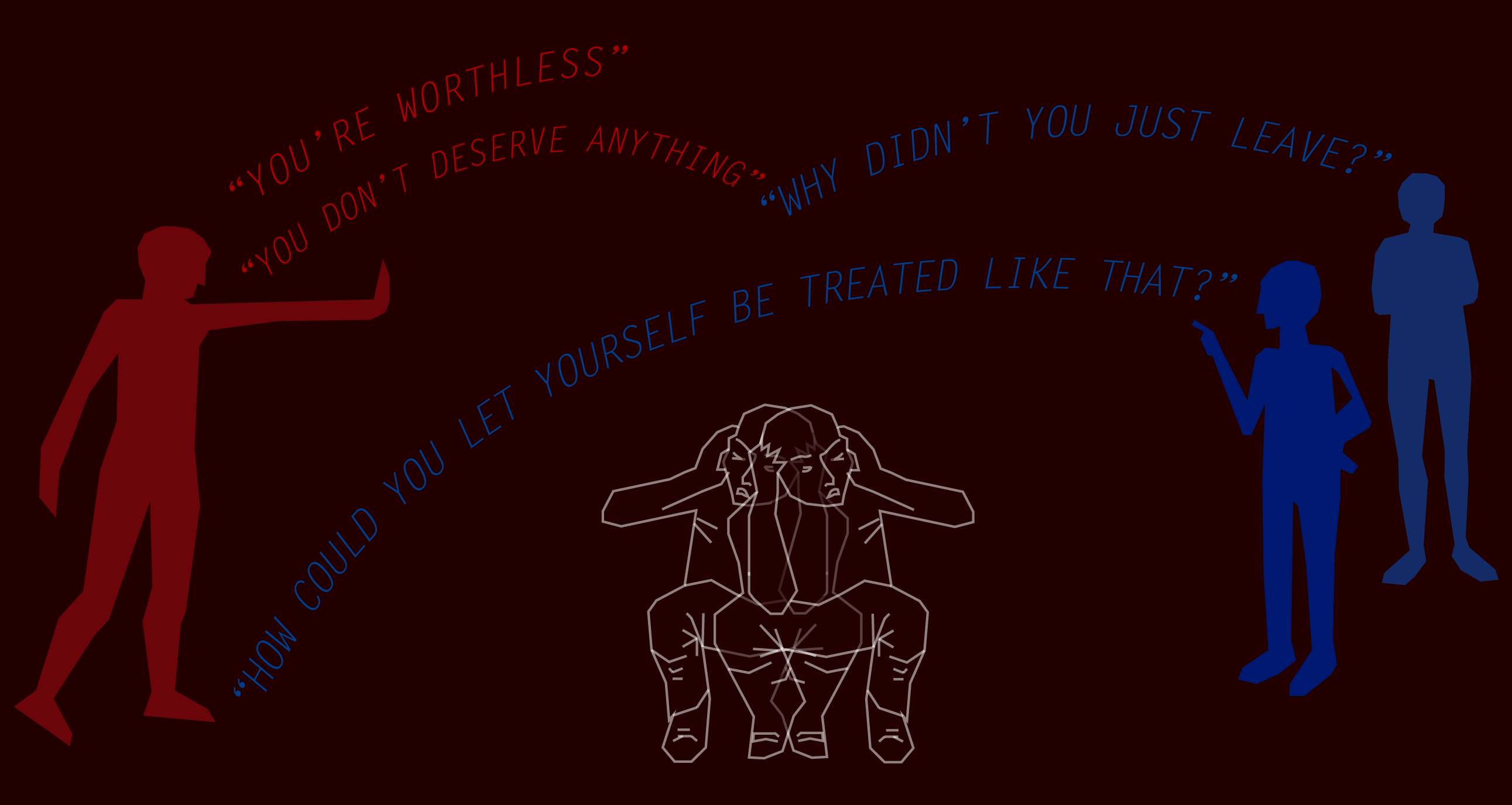“Why Didn’t You Just Leave?”
“Why didn’t you just leave?” This is often the first question that survivors of domestic abuse are asked and the answer isn’t so simple. There are any number of reasons that victims may choose to stay with their abuser, all of which serve to psychologically or physically prevent a victim from seeking help.
When individuals that are suffering at the hands of an abuser do speak up, they often find themselves victims of an apathetic, and abuse-tolerant legal system.
Take the case of Deanna Walters, who was kidnapped by her estranged husband across state lines, and suffered severe beatings for several days before her husband was detained by police. During the entirety of this horrific episode, Deanna’s juvenile daughter was forced to watch. When Deanna attempted to have her husband brought to trial, the state prosecutor declined to take the case, stating that it was Deanna’s responsibility to leave in the case of abuse. If that prosecutor did take the case and put her husband on trial, the maximum jail time he could receive would be 150 days.
Cases like Deanna’s serve to highlight the all too common difficulty survivors of domestic abuse face within the legal system. Oftentimes, it can seem like the institutions themselves are stacked against those who most desperately need help.
The inability for victims to get their abuser arrested or prosecuted is believed to contribute to the staggeringly low reporting rates of domestic violence.
Only about half of all calls to police result in an arrest and for every one reported case of physical abuse, three go unreported.
Rather than asking, “Why didn’t you just leave?” ask survivors of domestic abuse how they left. What you’ll find are incredible stories of brave women who stood up in the face of violence, such as Kit Gruelle, who survived several decades of abuse and went on to become a legal activist for survivors like Deanna Walters. Deanna’s former husband stood trial for his crimes in a federal court and was convicted thanks to Kit, whose legal efforts were documented in the film Private Violence.
While Deanna may have gotten the justice she needed, many women still go without it. Efforts are being made in vital areas, such as training for law enforcement, but the key to preventing abuse is recognizing when someone is a victim, and acknowledging feeling of isolation.
Empathy towards a victim and an understanding that leaving an abuser is a process are key to letting someone know that they can escape the violence.





